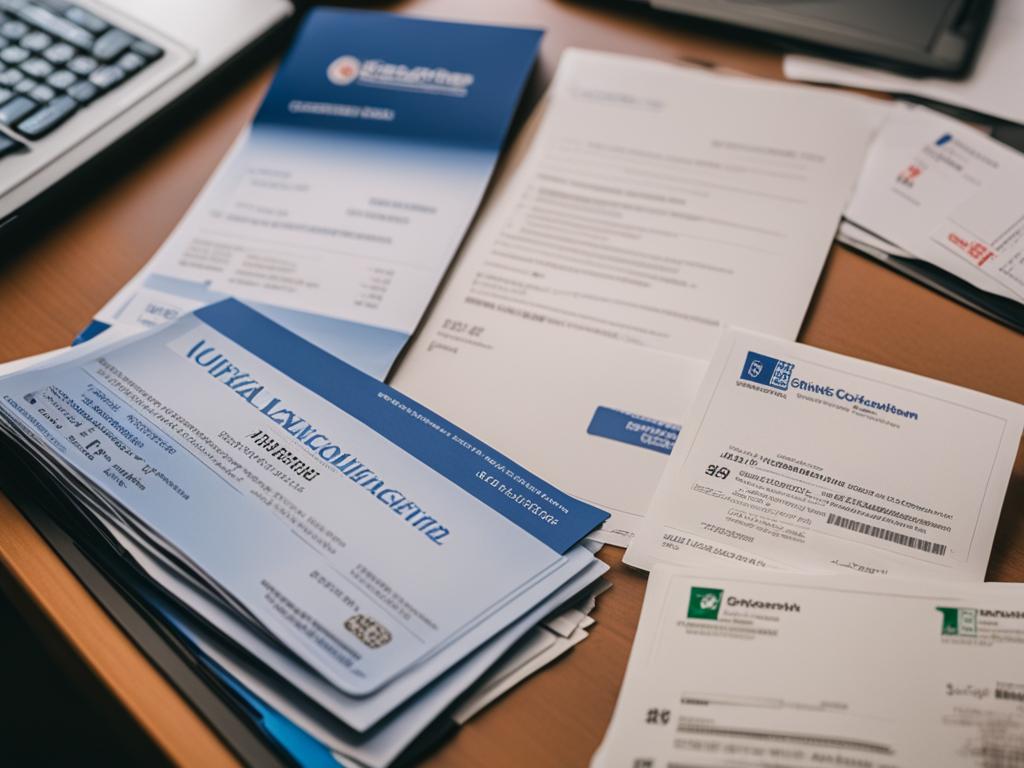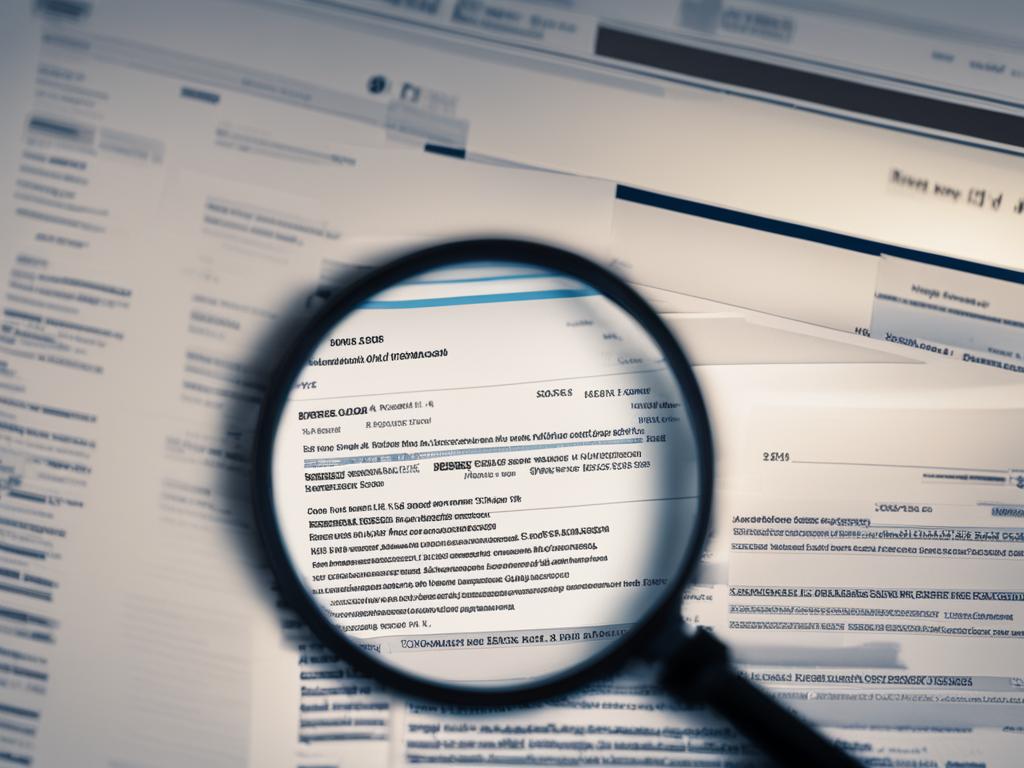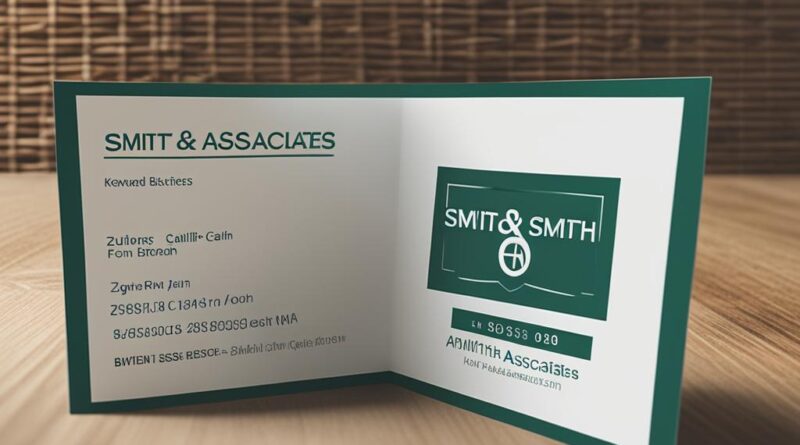Identifying Scams: How to Spot a Fake Law Firm
Fraudulent law firms are a growing concern, especially for individuals seeking legal representation in sensitive matters such as immigration, disability, IRS troubles, and personal injury. It is important to be vigilant and able to identify the signs of a potentially fake law firm to protect yourself from scams and legal complications.
Key Takeaways:
- Be cautious of demands for large upfront payments and pressure to retain services immediately.
- Verify the credentials of a law firm by checking with the state bar association and researching their online presence.
- Pay attention to red flags such as inconsistent communication and unprofessional websites.
- Avoid engaging with law firms that exhibit signs of fraudulent behavior to prevent financial loss and compromised personal information.
- Consult with licensed attorneys for proper legal advice and representation.
Beware of Phone Call Scams from Fake Lawyers
Scammers are constantly finding new ways to defraud unsuspecting individuals, and one common tactic is through phone call scams from fake lawyers. These scammers target people by pretending to be lawyers representing an opposing party in a lawsuit. They may claim that they are “suing” the individual and demand personal information or immediate settlement payments. It is essential to be aware of these scams and know how to identify them.
Legitimate lawyers do not conduct business in this manner. If there were a lawsuit, the person would have been served with a complaint by mail or in person. A key step in identifying a fake lawyer phone scam is asking for the name and bar number of the attorney handling the matter and verifying it with the State Bar. This information can be easily obtained and checked online, ensuring that the person on the other end of the phone is indeed a licensed attorney.
Additionally, scammers may use various tactics to pressure individuals into providing personal information or making immediate payments. They may create a sense of urgency by claiming that failure to comply will result in severe consequences. It is important to remain calm and never provide personal or financial information over the phone. Instead, hang up and independently contact the alleged law firm using the contact information you already have or through a trusted legal directory to verify the legitimacy of the call.
By staying vigilant and knowing how to identify fake lawyer phone scams, individuals can protect themselves from falling victim to these fraudulent schemes. Remember, legitimate lawyers will never demand personal information or payments over the phone, and they will always provide proper documentation if there is a genuine legal matter at hand.
Table: Signs of Fake Lawyer Phone Scams
| Signs | Description |
|---|---|
| Demands for personal information | Fake lawyers may ask for sensitive personal details, such as Social Security numbers or financial information, to exploit for identity theft or other fraudulent activities. |
| Requests for immediate payment | Scammers may pressure individuals into making immediate payments, usually in the form of wire transfers or prepaid debit cards, to avoid alleged legal consequences. |
| Unverified claims of lawsuits | Fake lawyers may claim that they are suing the individual without providing proper documentation or serving a complaint, which legitimate lawyers would always do through official channels. |
Spotting Scams When Searching for a Lawyer
When searching for a lawyer, it is important to remain vigilant and aware of the signs of a scam. The rise of fraudulent law firms targeting vulnerable individuals in need of legal representation has made it crucial to exercise caution. Here are some red flags to look out for:
- Demands for Large Sums of Money: Scammers often pressure individuals into paying large upfront payments, claiming it is necessary for immediate legal services. Legitimate law firms typically request reasonable retainers and explain their fee structure in a transparent manner.
- Pressure to Retain Immediately: Scammers may try to create a sense of urgency, insisting that immediate action is required to protect your rights. Genuine lawyers understand the importance of informed decisions and will not rush you into retaining their services.
- Emergency Claims: Fraudulent law firms may claim that your situation is an emergency and that you must act quickly to avoid dire consequences. While some legal matters may require prompt attention, it is essential to evaluate the credibility of such claims.
It is crucial to do thorough research and verify the legitimacy of a law firm before engaging their services. Trust your instincts and be cautious of individuals who make you feel pressured or worried. Additionally, check the alleged attorney’s name with the State Bar to confirm their credentials. Remember, protecting yourself from scams is as important as finding the right legal representation.
Table: Examples of Scam Law Firm Signs
| Signs of a Scam Law Firm | Explanation |
|---|---|
| Demands for large upfront payments | Scammers may pressure individuals into paying substantial sums of money before providing any services. Legitimate law firms typically have transparent fee structures. |
| Pressure to retain immediately | Fraudulent lawyers may create a sense of urgency, insisting that immediate action is required. Genuine lawyers understand the importance of informed decisions and will not rush clients. |
| Emergency claims | Scammers may assert that your situation is an emergency, attempting to pressure you into quick action. It is important to evaluate the credibility of such claims and seek reputable advice. |
By staying informed and alert, you can protect yourself from falling victim to scam law firms. Remember to trust your instincts, conduct thorough research, and consult with trusted sources before making any decisions. The right legal representation should provide you with a sense of security and confidence in navigating your legal matters.
The Risks of Using Document Preparation Assistance
Document preparation assistance offices have become prevalent in recent years, offering individuals the convenience of preparing legal documents without the cost of hiring an attorney. However, it is important to understand the limitations of document preparers and the potential risks involved in relying solely on their services.
One of the key limitations of document preparers is their inability to provide legal advice. While they can assist in typing up paperwork, they are not qualified or authorized to offer legal guidance or interpretation of the law. This can be particularly problematic in complex legal matters where expert advice is crucial. Without the input of a licensed attorney, individuals may inadvertently make errors or fail to address important legal considerations, leading to serious consequences.
Using document preparation assistance also carries the risk of incomplete or incorrect filings. Document preparers may lack the knowledge and experience to accurately complete legal forms, resulting in mistakes that can delay the process or even render the documents invalid. This can have significant implications, such as missed deadlines, loss of legal rights, and unnecessary litigation.

Table: Risks of Using Document Preparation Assistance
| Risks | Impact |
|---|---|
| Inability to provide legal advice | Potential for incorrect legal guidance and inadequate representation |
| Errors in document preparation | Delays, invalidation of documents, and loss of legal rights |
| Lack of accountability | No legal recourse for errors or negligence |
| Insufficient knowledge of local laws and regulations | Incomplete or non-compliant filings |
Additionally, document preparers may lack accountability for any errors or negligence in their services. Unlike attorneys who are bound by ethical and professional obligations, document preparers are not held to the same standards. This means that if something goes wrong, individuals may have limited or no legal recourse.
Moreover, document preparers may not possess comprehensive knowledge of local laws and regulations. Each jurisdiction has its own specific requirements and procedures, and document preparers may not be fully equipped to navigate these complexities. This can result in incomplete or non-compliant filings, further exacerbating the potential risks and complications for individuals.
Verifying the Credentials of a Law Firm
When seeking legal representation, it is essential to verify the credentials of a law firm to ensure its legitimacy and credibility. By taking a few simple steps, individuals can protect themselves from fraudulent practices and make informed decisions about their legal needs.
Checking Bar Association Listings
One of the first steps in verifying the credentials of a law firm is to check their profile with the state bar association. Bar associations maintain comprehensive databases of licensed attorneys, allowing individuals to confirm that the firm and its attorneys are in good standing. This information provides peace of mind and reassurance that the law firm has met the necessary requirements to practice law.
Evaluating Online Presence
In today’s digital age, a law firm’s online presence can provide valuable insights into their professionalism and credibility. Take the time to explore the firm’s website, paying attention to the quality of content, client testimonials, and any professional affiliations or certifications. Additionally, consider researching the firm on reputable legal directories and review platforms to gather further information about their reputation and client experiences. A strong online presence is indicative of a reputable law firm that values transparency and building trust with their clients.
| Verification Steps | Importance |
|---|---|
| Checking bar association listings | Essential |
| Evaluating online presence | Crucial |
“Verifying the credentials of a law firm is an important step to protect yourself from scams and ensure you are working with legitimate legal professionals. Checking bar association listings and evaluating the firm’s online presence can provide insight into their reputation and qualifications.” – Legal Expert
By following these steps and conducting proper due diligence, individuals can make informed decisions when selecting a law firm. Verifying credentials, checking bar association listings, and evaluating online presence are key components of ensuring the legitimacy and credibility of a law firm. By doing so, individuals can have confidence in their legal representation and protect themselves from potential scams and unnecessary legal complications.
Red Flags for Fake Lawyers
When seeking legal representation, it is essential to be aware of the warning signs that indicate a counterfeit law firm. By recognizing these red flags, individuals can protect themselves from scams and avoid potential financial loss or ineffective legal representation. Here are some key red flags to watch out for:
Inconsistent Communication
A legitimate lawyer values effective communication and will strive to maintain consistent contact with their clients. If you experience difficulty in reaching a lawyer or receive sporadic responses to your inquiries, it could be a sign of a fake lawyer. Genuine legal professionals understand the importance of prompt and reliable communication.
Unprofessional Website
Another warning sign to look out for is an unprofessional website or online presence. Legitimate law firms invest in creating a professional online platform that accurately represents their expertise and services. If a law firm’s website appears poorly designed, lacks essential information, or contains grammatical errors, it may indicate a fraudulent operation.
Remember to trust your instincts and exercise caution when engaging with legal professionals. If something feels off or raises suspicion, it’s essential to verify the legitimacy of the lawyer or law firm before proceeding. By staying vigilant and recognizing these red flags, individuals can safeguard themselves from scams and ensure they receive reliable legal assistance.

Consequences of Engaging with Fake Law Firms
Engaging with fake law firms can have severe consequences, including financial loss, compromised personal information, and ineffective legal representation. These fraudulent entities often demand upfront fees, promising quality services but failing to deliver. Victims end up losing their hard-earned money without receiving any valuable legal assistance.
Furthermore, fake law firms may use deceptive tactics to obtain personal information from unsuspecting individuals. This compromised data can be used for identity theft or other illicit activities, causing significant harm to the victims. It is essential to be cautious and protect sensitive personal information by only engaging with reputable and legitimate law firms.
“The consequences of dealing with fake law firms can be devastating. Not only can individuals face financial ruin, but they may also experience long-term negative effects on their personal and professional lives. It is crucial to thoroughly research and verify the legitimacy of any law firm before entering into any agreements or providing any personal information.”
In addition, engaging with fake law firms can result in ineffective legal representation. These fraudulent entities often lack the necessary expertise and qualifications to handle complex legal matters, leaving individuals in vulnerable positions. Victims may find themselves with improper legal advice, mishandled cases, and ultimately, unfavorable outcomes. It is crucial to verify the credentials and reputation of a law firm to ensure competent and reliable legal representation.
| Consequences of Engaging with Fake Law Firms | Significance |
|---|---|
| Financial Loss | Individuals may lose significant amounts of money through upfront fees or subpar services. |
| Compromised Personal Information | Fake law firms can obtain and misuse personal data, leading to identity theft and other harmful consequences. |
| Ineffective Legal Representation | Victims may receive improper legal advice and mishandled cases, resulting in unfavorable outcomes. |
How to Identify Fake Lawyer Email Address Scams
Fake lawyer email address scams are becoming increasingly common, and it is important to be able to recognize the signs of fraudulent communication. By staying vigilant and following these guidelines, you can protect yourself from falling victim to these scams.
Signs of Fraudulent Lawyer Emails
There are several red flags that can indicate a fake lawyer email. Look out for:
- Unsolicited emails: If you receive an email from a lawyer you have never contacted or heard of before, it may be a scam.
- Generic greetings: Legitimate lawyers usually address their clients by name, so be cautious of emails that use generic greetings like “Dear Sir/Madam” or “To Whom It May Concern.”
- Poor grammar and spelling: Many scam emails originate from non-English speaking countries and may contain noticeable grammar and spelling errors.
- Urgent or threatening language: Scammers often use fear tactics to pressure individuals into taking immediate action, so be wary of emails that demand urgent responses or threaten legal consequences.
- Suspicious email addresses: Legitimate lawyers typically use professional email addresses associated with their law firms. If the email address seems suspicious or unrelated to a law firm, it may be a scam.
- Requests for personal information: Genuine lawyers will not ask for sensitive personal information via email. Be cautious of emails that request your social security number, bank account details, or other private information.
- Too-good-to-be-true offers: Scam emails may promise unrealistic outcomes or lucrative opportunities that sound too good to be true.
- Unverified links or attachments: Avoid clicking on any links or downloading attachments from suspicious emails, as they may contain malware or phishing attempts.
- The need to verify the law firm: If an email claims to be from a specific law firm, take the time to verify its legitimacy by cross-referencing the information provided with official records or reputable sources.
When in doubt, consult trusted sources or contact the law firm directly to verify the authenticity of the email. It is crucial to exercise caution and protect your personal information when dealing with unknown email correspondences.

Conclusion
In conclusion, it is crucial to be vigilant and informed when dealing with legal matters and searching for legal representation. Recognizing the red flags and warning signs of fake law firms and fraudulent lawyers is essential to protect oneself from scams, financial loss, and legal complications. Verifying the credentials of a law firm, evaluating its online presence, and trusting one’s instincts are important steps in ensuring the legitimacy and credibility of a law firm.
By staying cautious and cautious, individuals can safeguard themselves from falling victim to fraudulent lawyers. It is advisable to consult with licensed attorneys for proper legal advice and representation, as they possess the necessary expertise and knowledge. Remember, protecting oneself from scams in legal services starts with being aware and taking proactive measures to verify the authenticity of law firms and attorneys.
Keeping these tips in mind, individuals can navigate the legal landscape with confidence and peace of mind, ensuring that their legal matters are handled by trustworthy and legitimate professionals. By prioritizing due diligence and staying informed, one can effectively protect themselves from the risks associated with engaging with fake law firms and fraudulent lawyers.
FAQ
How can I identify a fake law firm?
Fake law firms often target vulnerable individuals seeking legal representation, particularly in areas such as immigration, disability, IRS troubles, and personal injury. Be cautious and look out for red flags that indicate a potentially fraudulent law firm, such as demands for large upfront payments, pressure to retain services immediately, and claims that the situation is an emergency. Trust your instincts and verify the alleged attorney’s name with the State Bar for legitimacy.
What should I do if a supposed lawyer contacts me about a lawsuit and demands personal information or settlement payments?
Scammers may pretend to be lawyers representing an opposing party in a lawsuit and try to obtain personal information or settlement payments. Legitimate lawyers do not conduct business in this manner. If there were a lawsuit, you would have been served with a complaint. Ask for the name and bar number of the attorney handling the matter and verify it with the State Bar to determine the legitimacy of the call.
Can document preparation assistance offices provide legal advice?
No, document preparation assistance offices are staffed by non-attorneys or even disbarred attorneys who can only assist in typing up paperwork. They are legally prohibited from providing legal advice. It is essential to consult a licensed attorney for proper legal advice to avoid complications in legal matters like incorrect bankruptcy filings or improper estate planning.
How can I verify the credentials of a law firm?
To ensure the legitimacy of a law firm, you can check the law firm’s profile with the state bar association, use online legal directories, and research the law firm’s reputation through reviews and testimonials. Additionally, evaluating the law firm’s online presence, including its website and online content, can provide insights into its professionalism and credibility.
What are the red flags for spotting fake lawyers?
Red flags for fake lawyers include inconsistent communication, difficulty in reaching the lawyer, vague and evasive answers to questions, and unprofessional websites or online presence. Genuine lawyers prioritize effective communication and invest in creating professional online platforms. Recognizing these red flags can help you avoid falling victim to scams.
What are the consequences of engaging with fake law firms?
Engaging with fake law firms can result in financial loss, compromised personal information, and ineffective legal representation. Fake law firms may demand upfront fees, provide subpar services, steal personal information, and mishandle legal matters. It is crucial to verify the legitimacy of a law firm before engaging their services to avoid these negative outcomes.
How can I identify fake lawyer email address scams?
Fake lawyer email address scams can be recognized by being vigilant and looking for common signs of fraudulent communication. These signs include unsolicited emails, generic greetings, poor grammar and spelling, urgent or threatening language, suspicious email addresses, requests for personal information, too-good-to-be-true offers, unverified links or attachments, and the need to verify the law firm before responding to any email. Consulting trusted sources and verifying the legitimacy of the email is essential.

